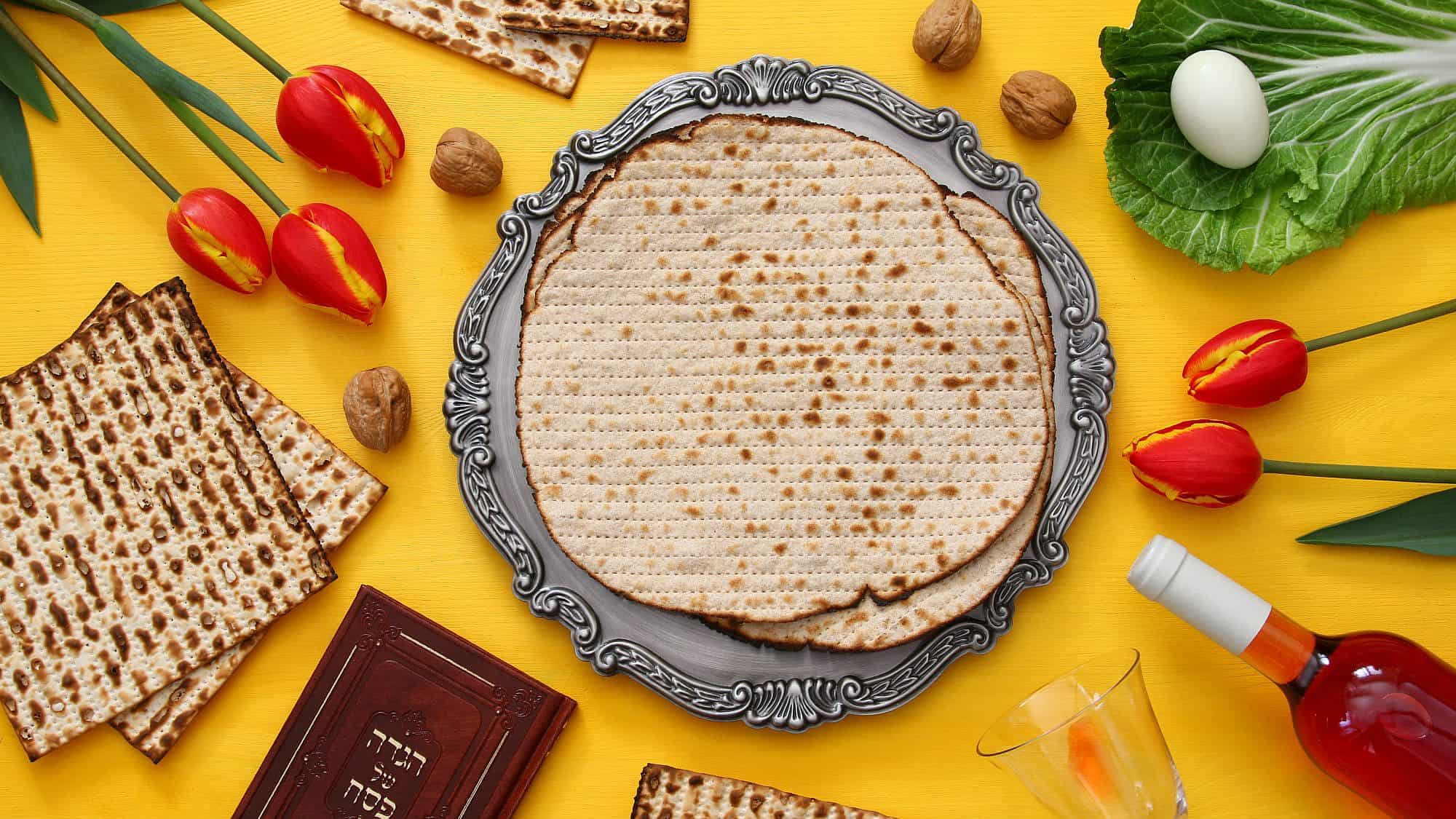My head is spinning. A Passover seder meal totally planned and nearly completely prepared on the East Coast and then flown to the West?
For Gloria and Bob Spitz, it’s no big deal. Gloria says, “We’ve been doing it for the last five years; it’s a combined effort, a labor of love.”
Why did they decide to schlep dishes and the makings of a seder to California? Wouldn’t it be easier to cook for the crowd in your own kitchen? Gloria explains that “it’s easier for two to fly out there than to bring nine to Philadelphia.” Their two sons, Eric (and his wife, Jane) and Daniel (and his wife, Liat), and five grandkids—ages 13 to 23—all live in the Los Angeles area. Gloria and Bob usually fly out one or two days before the start of Passover “so that we can pick up items like chicken for the soup and any ingredients I cook that day,” she says, “and we get to spend time with all the grandkids.”
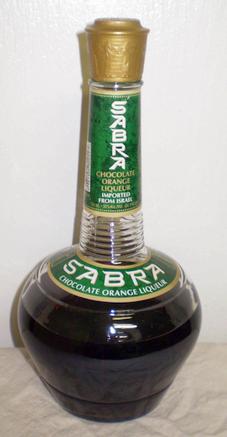
For the past 50-plus years, Gloria and Bob have lived harmoniously with her sister, Susan Lodish, husband Len and their families, but Gloria has always been the “master cook.” The Food Processor Gefilte Fish and Carrot-Pineapple Kugel recipes are from Passoverama, a collection of favorite recipes from the Sisterhood of Temple Beth Hillel-Beth El in Wynnewood, Pa. (the Conservative synagogue made headlines recently for not one, but two episodes of vandalism on an outdoor sign that says, “Our Community Stands With Israel”), and edited by Gloria and Susan. This was its first Passover cookbook, published in 1975. Passoverama went on to two more editions. The Passover Liquor Cake, Passover Chocolate-Chip Kamish Bread and Sweet Passover Cookies are from Gloria’s vast recipe collection. For the cookies, she substituted matzah for graham crackers in the original recipe.
Since Passover desserts, appetizers and sides are prepared at home to be transported to LA, Gloria’s kitchen is kashered a week beforehand. Everything is kosher for Passover. She adds, “I always bring one box of matzah with us, as often, the local LA store is sold out of Passover matzah,” and she insists on “always bring red horseradish. I can never find that in any store.” She has made and embroidered a foldable matzah holder. I was exhausted just listening to it all, and here they are a grab-and-go operation, as I am sure many others are this holiday season with families all over the country and the world.
Planning for the whole shebang begins six weeks ahead of time. Gloria has lists galore, each neatly handwritten on long sheets of paper. To name a few: “things to buy, things to bring, lists of people attending first seder, list of people attending second seder, lists of what to make at Daniel’s house, lists of what to pack to take to Eric’s house.” Each item is checked off when completed. “I’m only allowed one small box for storage in each house; they just don’t have room,” she says. Many items, such as serving utensils, are discarded and purchased anew the next year. This year I made a “pilgrimage” with Gloria to Amazing Savings, a party goods store in Lakewood, N.J., where she loaded a cart, disposable paper goods and glasses with Passover designs, serving utensils, flatware and even fancy toothpicks and skewers for fruit and appetizers. The jumbo soup pot is stored in Daniel’s house. She uses a lot of foil pans.
The night before, the oversized duffel bag is packed. Rather than bring containers, which take up room, spices needed are measured out into little plastic bags. Paper goods, flatware and serving utensils are arranged. The liquor cake is returned to the Bundt pan to avoid any crumbling. Just before leaving for the airport, rolls of gefilte fish that have been frozen in thermal bags are tucked into the duffel bag.
The first seder is at Daniel’s house with families, friends and neighbors. Since there’s no way to fit 20 to 30 people in their California home, Daniel’s garage is cleared out (usually used as a photographic studio), and tables and chairs are set up. Everybody is on board. Children arrange the Haggadahs; the seder plate; place cards; disposable dishes and flatware; and games to illustrate the plagues. The second seder is at Eric’s house, an hour away, where there’s even a visit from the Bishop of Orange County. It’s a repeat performance, this time setting up outdoors on the patio. One year, there was even a Chocolate Seder; that was a hit! The seders end with families and guests standing up, hands joined or arms draped around shoulders. Voices ring out as they sing “Hatikvah” (“The Hope”), Israel’s national anthem. Incorporated in the song: “To be a free people in our land of Zion and Jerusalem.” Perhaps that’s never been more relevant.
Family, food and tradition come together at Passover time—the most observed Jewish holiday, according to poll after poll. Let us celebrate our freedom together, and pray for the speedy release of the hostages and a lasting peace for Israel.
Chag Pesach Sameach!
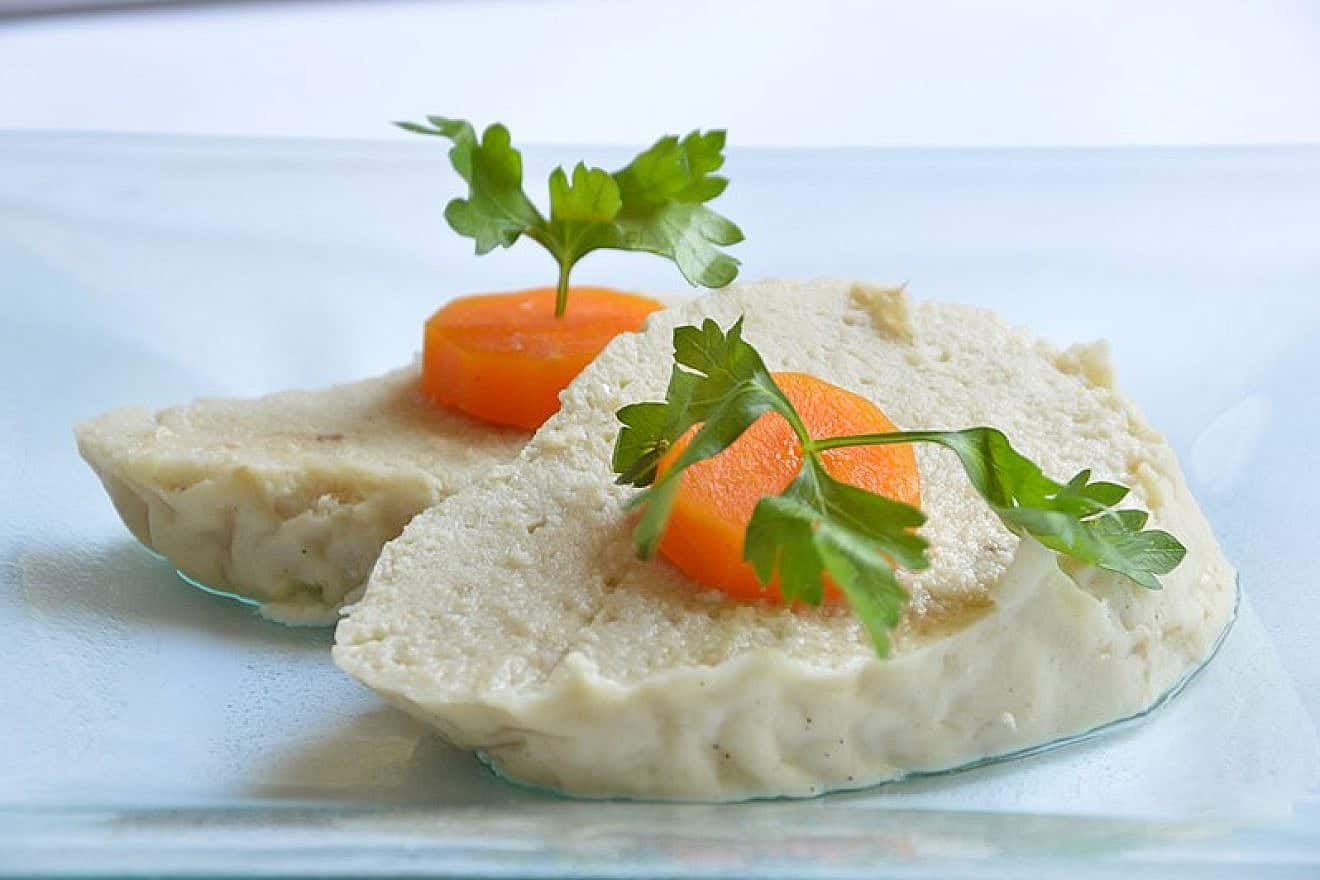
Food-Processor Gefilte Fish (Pareve)
Serves 6
Ingredients:
bones, heads and skins of fish
2 onions with skins
2 large carrots, sliced
1 stalk celery with leaves, sliced
cold water to cover
salt and pepper
3 pounds of fish fillets (pike and carp, or pike and whitefish)
4 large onions, peeled and cut into chunks
1½ cups matzah meal or more as needed
salt and freshly ground white pepper
2 eggs
¼ cup cold water
parsley to garnish
Directions:
Make the fish stock by placing bones, heads and skins of fish in a large pot. Add two onions. Leaving on the skins gives the stock a yellow color. Add carrots and celery and cover with cold water. Season with salt and pepper. Simmer for 1 hour. Set aside.
Grind fillets and four peeled onions in a food processor until finely chopped. Add the rest of the ingredients and mix well. Shape into desired size. If the mixture falls apart add more matzah meal.
From the stock, remove and discard fish bones, heads and skins. Taste stock and adjust seasoning. Place gefilte fish portions into stock and simmer for 1½ to 2 hours.
Allow to cool slightly before removing fish to a platter carefully to retain shape.
Serve warm or thoroughly chilled. Garnish with sliced, cooked carrot and a sprig of parsley.

Food-Processor Carrot-Pineapple Kugel (Pareve)
Serves 6
Ingredients:
3 eggs, separated
4 large carrots grated or 3 cups grated
¾ cup raisins
1½ teaspoons cinnamon
3 tablespoons sugar
1 small can (8 ounces) crushed pineapple, drained
2 apples, diced
½ cup matzah meal
2 tablespoons oil
Directions:
Preheat oven to 325 degrees. Grease a 9-inch square pan or a 2-quart casserole.
Whisk the egg whites until stiff. Set aside.
Mix the egg yolks and remaining ingredients in the food processor. Transfer to a bowl.
Fold in the stiffly beaten egg whites. Spoon the mixture into a prepared baking dish or casserole.
Bake in preheated oven for 1 hour.
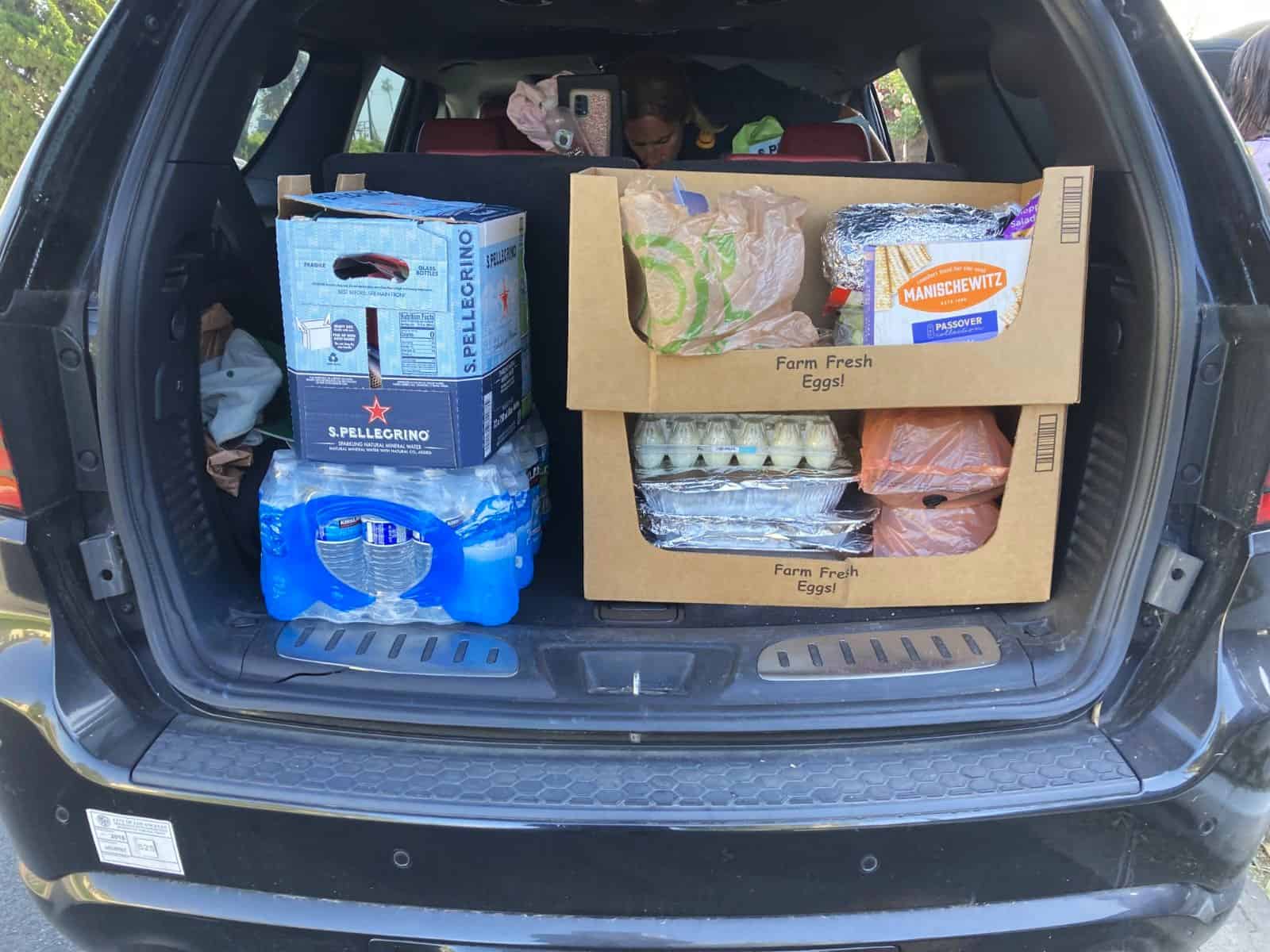
Passover Liquor Cake (Pareve/Dairy, formerly known as Rum Cake)
Serves 10-12
Ingredients:
1 cup chopped pecans
brown sugar (optional)
1½ boxes of yellow kosher-for-Passover cake mix (a half box, or 12 ounces, is ¾ cup of mix)
1 small package of kosher-for-Passover instant vanilla pudding mix
4 eggs
½ cup cold water
½ cup canola oil
½ cup kosher-for-Passover liquor (i.e., Sabra)
Directions:
Preheat oven to 325 degrees.
Grease and flour a Bundt cake pan or spray it with kosher-for-Passover nonstick baking spray.
Sprinkle pecans over the bottom of the pan. If desired, sprinkle a couple of tablespoons of brown sugar over nuts.
In a bowl, combine the remaining ingredients. Mix well.
Pour the batter over the nuts, smoothing the top evenly.
Bake for 1 hour or a little less if the Bundt pan is black. Do not overbake. While the cake has 10 minutes of cooking left, make the glaze.
Glaze:
6 tablespoons butter or margarine
2 tablespoons cold water
¾ cup sugar
6 tablespoons liquor, kosher-for-Passover
Melt the butter or margarine in a medium saucepan. Stir in the water and sugar.
Bring to boil, stirring constantly, Cook for 4-5 minutes or until syrupy.
Turn off the heat and pour in the liquor. Stir to combine and reheat for 30 seconds.
Remove cake from oven. Immediately drizzle about one-third of the glaze over the cake in the pan. Allow to sit for 5 minutes. Invert the cake onto a serving plate. Prick the surface about 100 times (gently please).
Slowly drizzle the remaining glaze all over allowing it to drip down the sides. Cool at room temperature before serving.
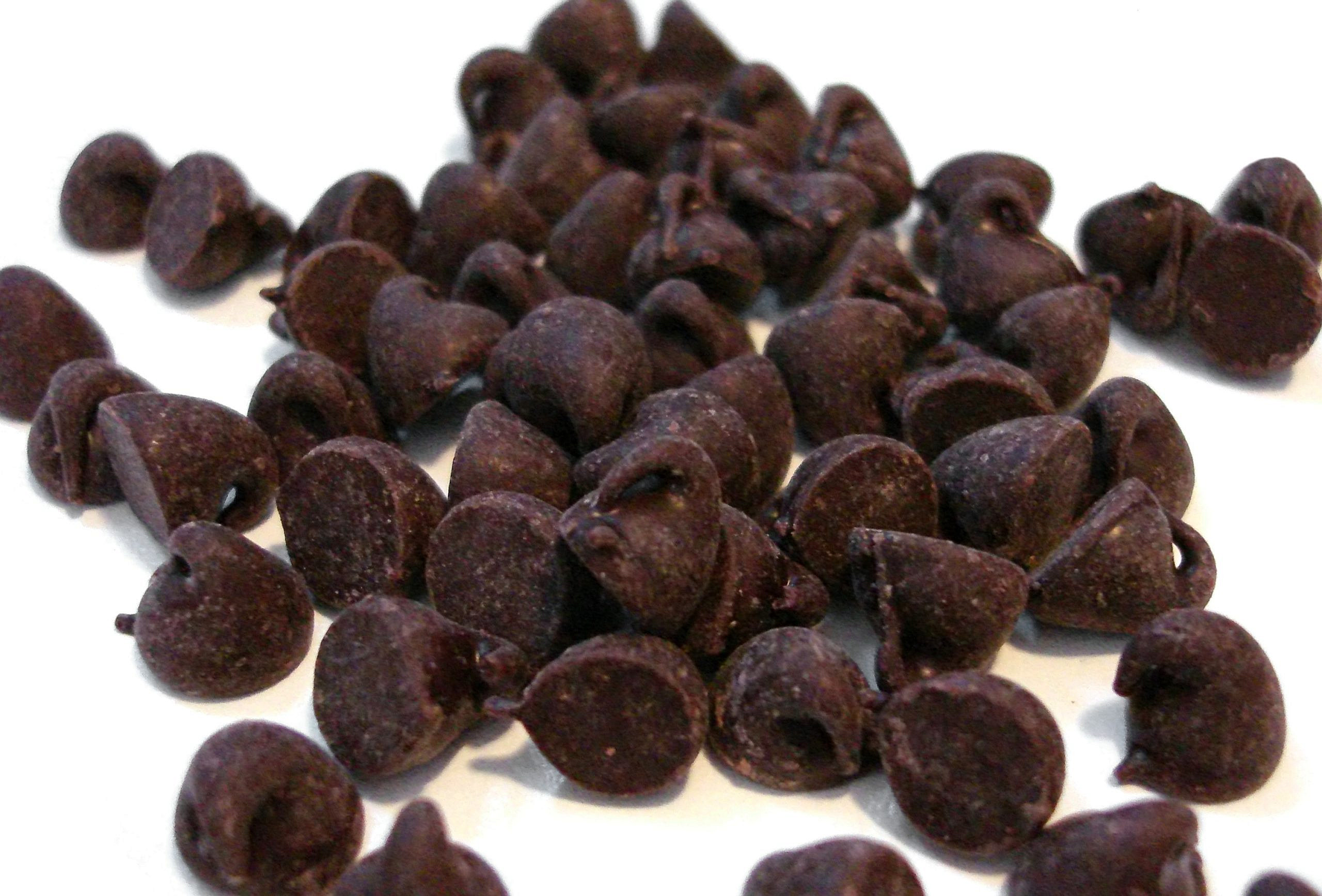
Passover Chocolate-Chip Kamish Bread (Dairy or Pareve)
Makes 36 cookies
Ingredients:
2¾ cups matzah cake meal
½ teaspoon salt
¾ cup potato starch
1 cup (2 sticks) unsalted butter or margarine at room temperature
2 cups sugar
6 large eggs
1 teaspoon vanilla extract
2 cups semisweet chocolate chips (may add some pistachios)
cinnamon sugar to sprinkle (optional)
Directions:
Preheat oven to 350 degrees.
Line two sheet pans with parchment paper. In a medium bowl whisk together cake meal, salt and potato starch. Set aside.
Cream the butter and sugar. Add the eggs, one at a time, beating well after each addition. Gradually add the cake meal mixture, mixing well. Stir in the chocolate chips.
With wet hands, form dough into four loaves, each about 12 inches long. Place two of them a good size apart from each other on each baking sheet.
Bake in preheated oven for 45 minutes or until just turning golden brown. Cool for around 15 minutes and then slice about three-quarters inches wide. May sprinkle with cinnamon sugar.
Return to oven and bake until golden brown on all sides.
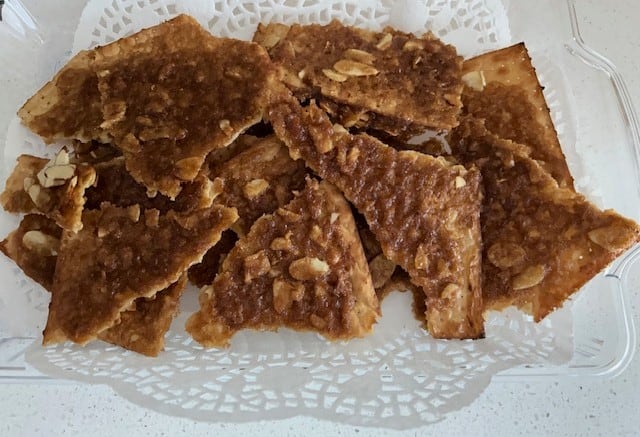
Sweet Passover Cookies (Dairy or Pareve)
Makes 24-30
Ingredients:
6 matzahs
⅓ cup of sliced almonds (optional)
1 cup (2 sticks) butter or margarine
1 cup brown sugar
1 teaspoon vanilla
Directions:
Preheat oven to 350 degrees.
Line 2 large-rimmed cookie sheets with foil, dull side up. Cover with matzahs in one layer breaking to fit. Sprinkle with almonds. Set aside.
Melt butter or margarine in a medium saucepan over medium heat. Stir in the brown sugar and vanilla. Mix well.
Spoon over the matzahs, spreading to cover. Make sure almost equal amounts of melted butter or margarine, and the sugar, are spooned over top.
Bake in preheated oven for 8 minutes. Cool completely, then break apart into desired-sized pieces.
Ethel G. Hofman is a widely syndicated American Jewish food and travel columnist, author and culinary consultant.


























